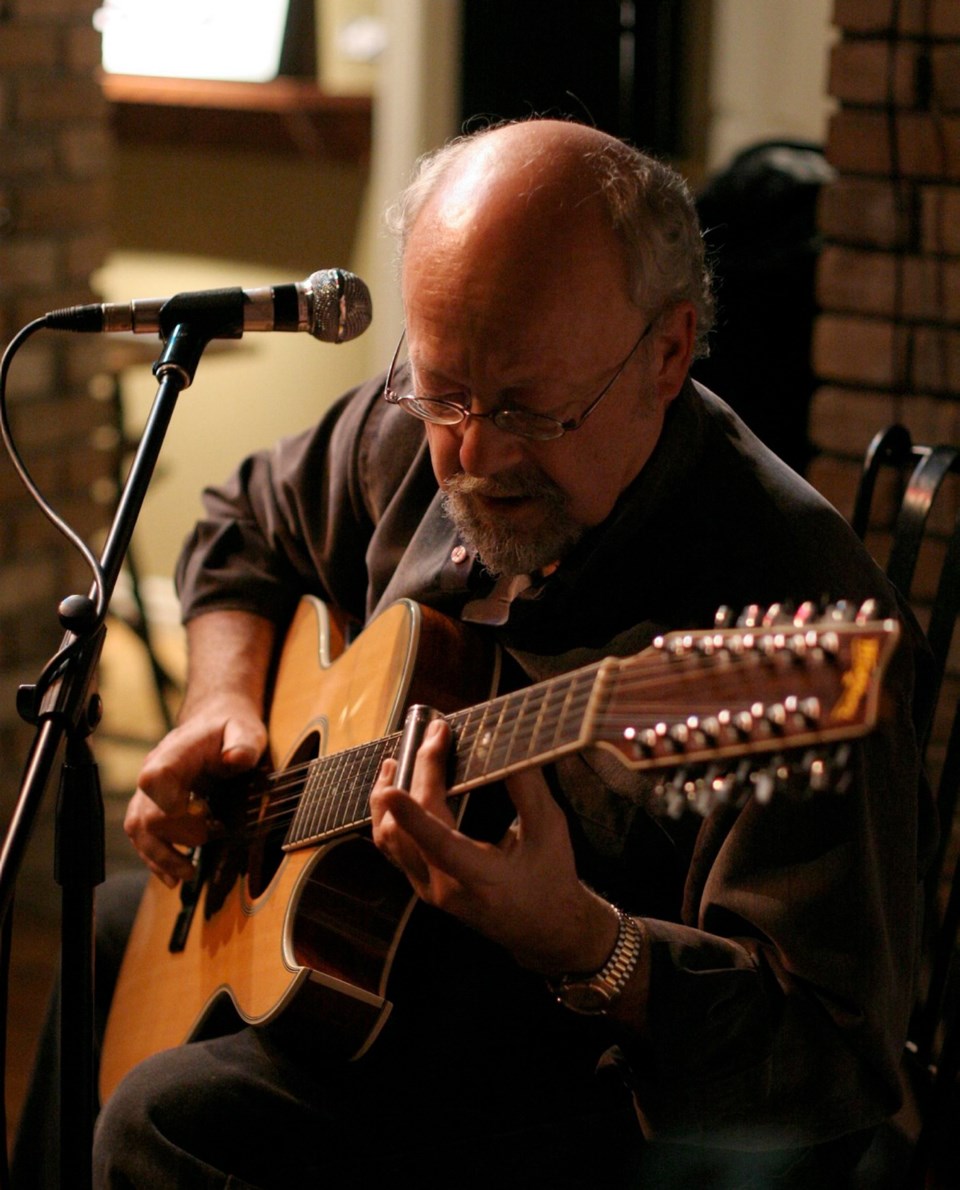What: David Essig (opener Sweet Potato Brown)
When: Friday, 7:30 p.m. (doors 7) Also Nov. 6 at Hornby Island Community Hall and Nov. 7 at Simon Holt restaurant in Nanaimo
Where: St. Paul’s United Church, 2410 Malaview Ave., Sidney
Tickets: $20 at Tanner’s Books, Lyle’s Place or essig.bpt.me
Back in 1971, the big question for David Essig was: Should I stay or should I go?
At the time, Maryland-born Essig was finishing a PhD in economics at the University of Wisconsin. He had planned on being an economics professor, but was increasingly disenchanted with the office politics surrounding academia.
One day, feeling in a funk, Essig drove to the Mississippi River, which rises in Minnesota and runs clear to the Gulf of Mexico. Pondering the big river, he experienced what he calls an “epiphany.”
He had a vision of himself 20 years in the future. Essig saw himself as a complacent professor in some small midwestern town.
“And on the wall would be my beautiful Gibson J-200 guitar that I hadn’t touched in 10 years. I thought, I don’t want to do that,” he said this week.
At that moment he decided to abandon economics as a career. At his sister’s urging, he travelled to southern Ontario. There, Essig, already a professional guitarist on the side, found friendly folkies and ample coffee-house gigs.
“ ‘Welcome home, brother!’ was the feeling I had,” he said with a grin.
One of Canada’s most admired singer-songwriters, Essig turns 70 in December. He is bespectacled and goateed, his head framed by a cloud of curly white hair.
Essig lives with his wife on Protection Island, off Nanaimo, where automobiles are frowned upon and most residents (including him) drive electric golf carts.
His 1970s Canadian adventure turned out well almost immediately. A year after his arrival, he played the Mariposa Folk Festival. It was a career-making performance. Essig was widely touted as a “talented newcomer,” a stamp of approval that led to regular gigs overnight.
He has recorded 20 albums of his own music over the course of a 45-year career. He has produced 60 recordings for fellow artists. Essig is especially admired as a guitarist (particularly his slide playing) whose folk sound is tinctured by bluegrass and country blues.
He’s responsible for writing a handful of Canadian folk standards, such as Albert’s Cove and High Ground. His most popular tune is likely an instrumental, Berkeley Springs. Essig figures it has been recorded by 30 other artists, including a Celtic harpist, a flutist and a harmonica player in Chicago.
A Don Ross recording of Berkeley Springs (circulated globally on a sampler disc) and CBC radio’s use of it as a theme song provided a welcome financial boost.
“I got some good royalties off of that. It was the only time I got good royalties,” Essig said.
His last album was the 2012 folk recording Moon on Rough Bay. December will mark the release of a new album, A Country for Old Men. Recorded at Sugar Shack Studio in London, Ont., last summer, it features guitarist Rick Taylor and a hot-shot rhythm section.
“It’s totally rock,” Essig said. “I played electric guitar on the whole thing.”
It’s not such a departure as one might think. Early on, when Essig attended university in Washington, D.C., he played in a Paul Butterfield-style electric blues band. He still owns a couple of electric guitars, including a big Gretsch Electromatic “just like Brian Setzer has.”
In 1968 and 1969, in his early years of grad school, Essig was drawn to both electric Chicago blues and acoustic Delta blues. Back then he had a part-time job at Arlington Music in Arlington, Virginia, near Washington, D.C. One of the regular customers was Mississippi John Hurt, the legendary country blues guitarist, who dropped in to buy strings.
“He was a really friendly guy,” Essig said. “We got to know him. We would take him out on weekends ... We were sort of his pals, we would hang out.”
If you ask Essig what he has learned over a half-century of playing music, he’ll say it’s the importance of showing graciousness and compassion toward other musicians. It’s a lesson he learned not only from Hurt, but other master players such as the late Doc Watson, for whom Essig often opened.
“If I had to sum it up, the big lesson is, it’s not about me. It’s really about serving the art.”



